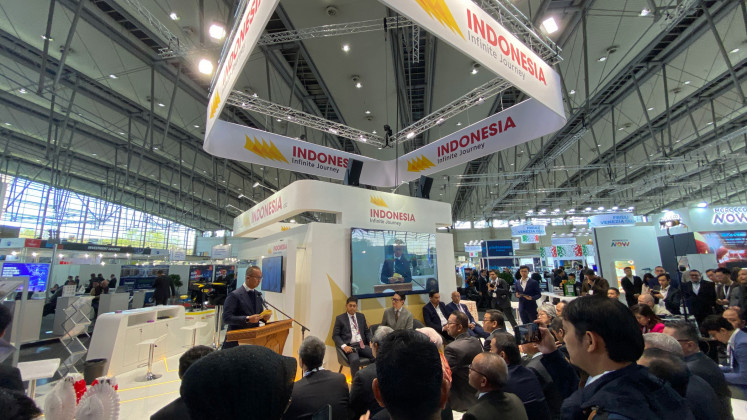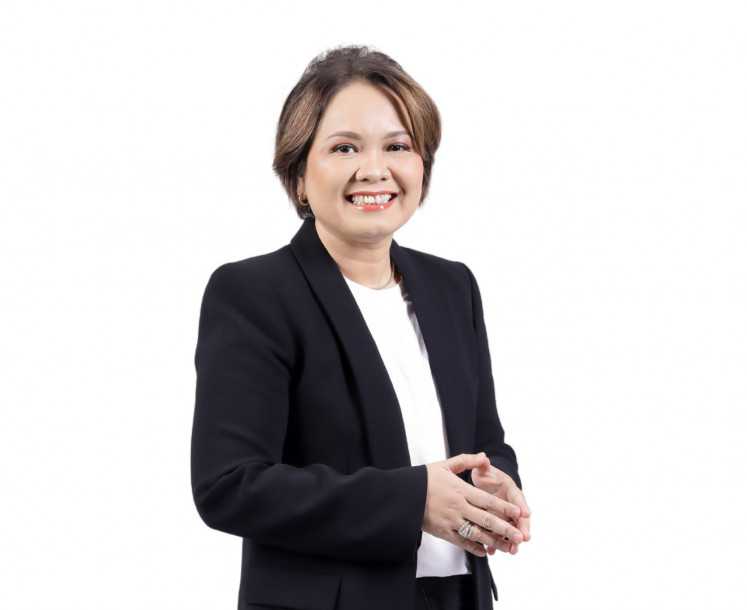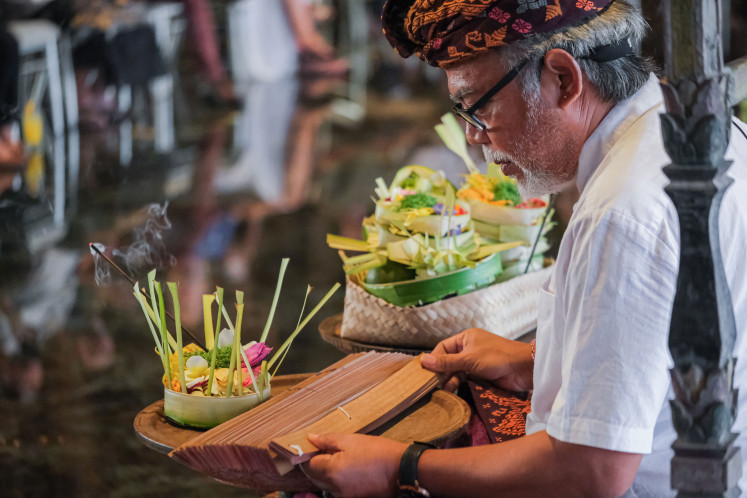ISEI members visits participants of APP Sinar Mas’ farmer empowerment program
Change Size
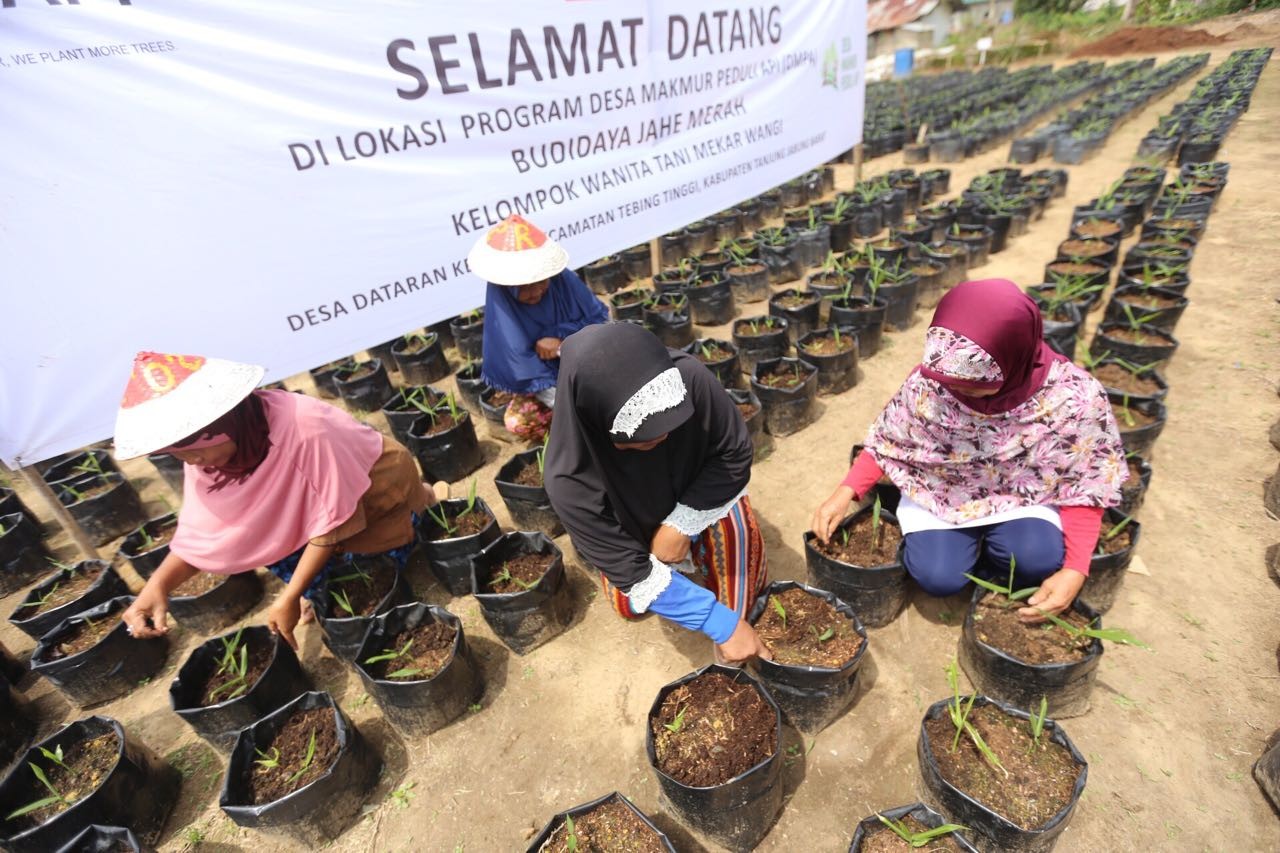
I
ndonesian Economics Scholars Association (ISEI) members have paid a visit to Asia Pulp & Paper Sinar Mas’ (APP Sinar Mas) operational area in Jambi to interact with farmers who joined the company’s empowerment program called Desa Makmur Peduli Api (Fire-free and prosperous village; DMPA) that is focused on helping locals to create prosperous residents who are aware of the importance of preventing forest fires.
The visit took place on Dec. 10 in the Dataran Kempas village, the Tanjung Jabur Barat regency in Jambi. In attendance were Tanjung Jabur Barat Regent Safrial, ISEI chairman Muliaman Hadad, ISEI Jakarta chapter chairman Halim Alamsyah, ISEI general secretary Aviliani as well as other ISEI members.
At the end of 2015, APP Sinar Mas introduced its DMPA program, which is a refinement of various community empowerment programs it has implemented previously. The program is an integrated initiative aimed at empowering locals -- including the company’s local suppliers -- who live in the company’s concession areas to run their own independent businesses to earn a living. Agroforestry -- a science that integrates various cultivation methods for maximum outcome -- has been the core of the empowerment program.
Muliaman said the company’s initiative was a breakthrough effort to develop collaboration between corporations and local people.
“APP Sinar Mas is working together with residents living in its concession areas to not just leverage the economic value of their activities, but also to empower them with skills. It has been a really great model [for such partnerships]. I think the government has recognized this partnership model as an applicable one,” Muliaman added.
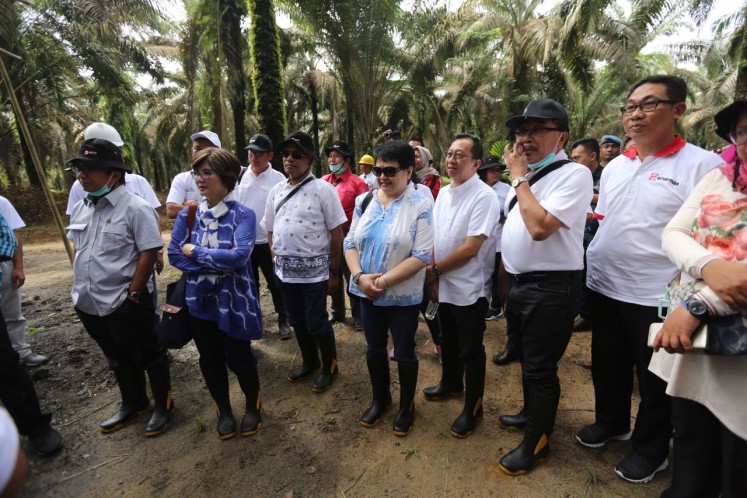
APP Sinar Mas director Suhendra Wiriadinata, meanwhile, said the program combined economic empowerment education with environmental conservation skills. The local residents learnt skills about fruit, vegetables and food crop cultivation, as well as husbandry, fisheries and food processing techniques to fulfill their daily nutritional needs or for them to set up their own agribusinesses through the program, Suhendra added.
He said the company would support the program’s participants by supporting the downstream and upstream aspects of their businesses -- including machine procurement, supervision, seed provision as well as consultations on marketing techniques.
Currently, Dataran Kempas village residents have started to manufacture their own fertilizer, cultivate their own red ginger and even breed their own lambs independently through a number of farmer working groups, thanks to the skills they have acquired through the program.
Red ginger cultivation in the village, for example, has been organized by the Mekar Jaya Female Farmers Working Group, comprising 130 housewives living there. The working group receives around Rp 50 million (US$350,000) in assistance for seed procurement to cultivate their own red ginger with a production capacity amounting to more than seven tons per year, with an estimated annual income of Rp 180 million.
Currently, the working group has already planted red ginger in around 5,000 polybags, with a target of planting it in 20,000 polybags. One polybag is estimated to be able to produce one kilogram of red ginger.
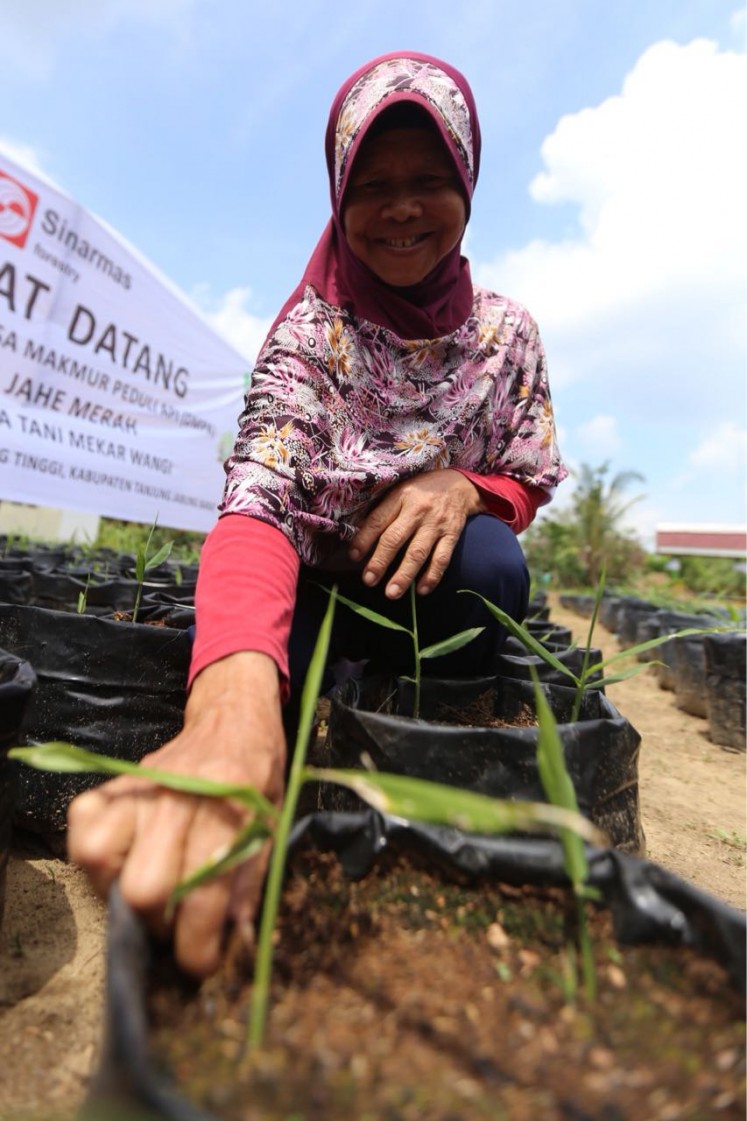
“We want to produce red ginger because it has numerous health benefits. Furthermore, it is also easy to plant and not too difficult to cultivate,” Mekar Jaya Female Farmers Working Group head Rita Ayuwandari said.
Besides that, the plant cultivation program also takes care of horticultural plants, including various vegetables and fruit, on a land spanning 0.5 hectare, with an estimated annual income of Rp 66.8 million.
Through the working group, local farmers have also been able in producing their own fertilizer, using palm oil waste or cow manure as the main components. Local fertilizer producers’ production capacity amounts to 1,000 tons per month, with an estimated annual income of Rp 1 billion.
The working group’s tilapia fish breeding program is run by 30 local residents, with a production capacity of 30,000 tilapia. The lamb breeding program, meanwhile, is run by 31 local residents, with a target of breeding 54 lambs per year, with an estimated annual income of Rp 118 million.




